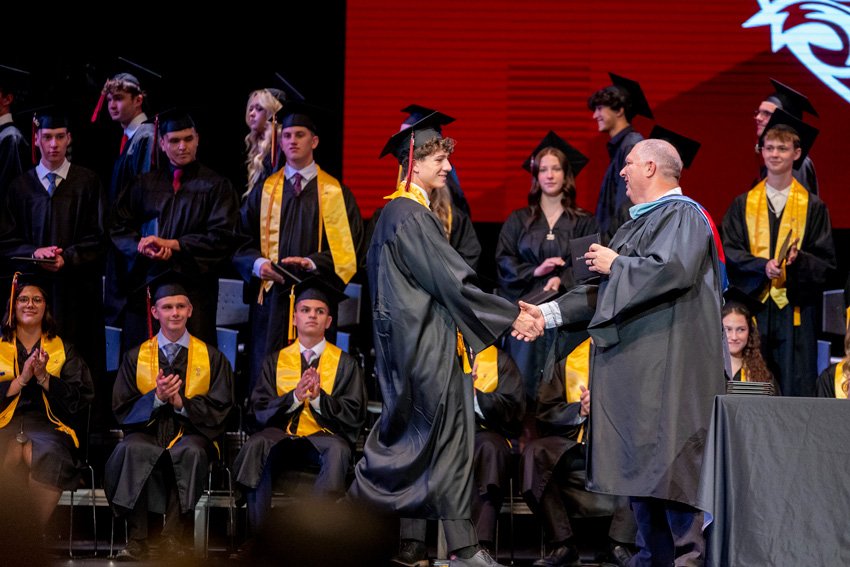When alumnus Tim Gomez was asked to move out of his house the weekend after his 18th birthday, he juggled his senior year of high school while in search of new housing. After two and a half years of sinecure, Gomez joined the military. The retired Feather staff member returned to Fresno to share Thanksgiving with his older brother.
Greg Stobbe conducted an interview with his former student on Nov. 27.
Stobbe: Gomez, what is your story?
Gomez: I got kicked out of my house in Feb. 2004, so I had to leave FC during my senior year to move to Los Angeles, where I washed cars at a Saturn dealership.
S: Why did you move to LA?
G: You have got to do what youíve got to do. I had to eat, get gas, and put clothes on my back. The only thing I didnít have to pay for was rent, and that was because I was living with my uncle, Steve Hungate, who lives at Redondo Beach.
S: So what did you do next?
G: Well, I got laid off in 2005, and I tried junior college for a while, but that didnít work because I was working two jobs, and it was too much. My uncle finally sat me down and said, ëWhat do you have to show, after two years of being out of high school?í and the truth is, I had nothing to show for it. So he said, ëYou can either quit work and go to school full time, or you can go into the military, which will be a paying job and education.í So I chose the latter.
S: Why did you choose the military?
G: To serve my country and get schooling done. If it werenít for the military, I wouldnít be where I am now. I wasnít ready and mature enough for college. The military put me on my feet.
S: What section of the military did you choose? Why?
G: I went in to the Air Force, because it fit me.
S: When did you join?
G: I had to lose a lot of weight and come back after a few months, so I worked flipping pizzas. I was getting ready to leave Feb. 27 of 2006, and I got a call on Feb. 19 from my officer, who said, ëThings changed. You leave Mondayí. So they put me on a plane for a six-week course in Texas.
Boot camp transcends expectations, impacts relationships
S: Tell me about boot camp.
G: You get off the bus at midnight, expecting to go to bed, and this guy starts screaming at you in your face, and you end up going to bed that night at 4 A.M., only to wake up two hours later, when they come in yelling.
S: Does anyone ever refuse to listen or pay attention, like many high school classes?
G: You can be hard headed, but youíll be doing push-ups. Shut up and obey, and itís easy.
S: How is that different from English classes?
G: You donít listen until you hit the bottom. Then, you do what you are told to do. In the military, if you donít ask questions, youíre OK. Always know that someone else will ask the question, and they will end up doing push-ups for it.
S: Did you know what you were getting into?
G: Yeah, because my uncle was in the military. Itís hard, though. I think everyone should do boot camp.
S: Why?
G: They break you down and build you up again. They make you feel like the lowest, but it really makes an impact.
S: What sort of impact does it make?
G: You develop relationships so much faster. If you donít work as a team, nothing will get done, and everyone will end up doing push-ups.
S: Do these same kind of relationships develop during high school?
G: No. You donít have to work as a team if you donít want to when youíre in high school. People are too immature. I thought I was mature at age 16 and 17, but I really wasnít.
S: How are you going to protect yourself from the negative aspects of war?
G: There are two things: first, I donít really think about it, and second, this is my duty. I signed up and if it comes to going and killing someone who is an enemy of my country, then thatís what I have to do.
S: Do you ever wonder why you serve a country that dealt you such a hard life?
G: Iím a very patriotic person. My motto is: Life is like a game of poker. You canít choose the hand life deals you. You just keep your poker face on, play your game, and live your life.
Gomezí current goals surface
S: What are you doing now?
G: Iím living in Utah, working as a munitions journeyman. I want to become an expert, but that takes a lot of time.
S: How long are you going to be in Utah?
G: I plan on being here four years. Iím trying to get my bachelorís degree in business. Itís always been a dream of mine to open a business.
S: What kind of business?
G: Maybe a pizza restaurant or I was also thinking of doing something in the medical field, so I can help my older brother, who has slight mental retardation.
S: Will you stay to get your degree?
G: If I stay, I might become an officer.
S: That means schooling, and you were never a ìschoolî kind of guy. What changed?
G: I started thinking, ëis this what I want to do with my life?í and I realized it wasnít. I mean I want to own a house someday.
S: What is your goal then, for today?
G: My goal is to get as much school done as I can. Take baby steps, and take it one day at a time. Tomorrow is another day.
Military provides income, teaches money management
S: So I remember meeting with you about a year ago and you not quite sure what you were going to do. What has happened since then?
G: Iíve got my head on my shoulders now. Once I left home, I had to deal with being on my own. I had to realize that no one is going to pay my bills for me. I learned to budget.
S: Where did you learn to budget?
G: The military actually taught me. They pay you a stipend per month, and you get to decide what to use it for. They pay for clothes, food, and lodging, so you just pay for the extras. I had to learn to budget, just in case my truck needed work, or anything like that.
S: Was it hard?
G: Yeah. In the beginning, I got expensive stuff, but at the end of the month, I had nothing to show for it. I started thinking, ëdo I really need the most expensive cable package?í and the answer was ënoí. If I want something expensive, I go home and think about it first. No more impulse buying.
S: Are you happy with yourself and how far you have come?
G: Iím proud of myself today. Iím not all the way there, yet, but I will be someday.
S: Do you think youíre experience of being kicked out was for the best then?
G: If I hadnít have been kicked out, Iíd probably be dead, or doing drugs. I couldnít deal with living at home, and leaving forced me to grow up.
S: What would you say to the seniors, relating to your high school experience?
G: If I could go back to high school, I would have focused more on the education. Itís your job. If you donít turn your work in, youíre in trouble. The teachers care and they hold you accountable. I didnít choose to listen, and I wish I did.
Gomez wrote features and columns dealing with car repair in The Feather during the 2002-03 school year.






